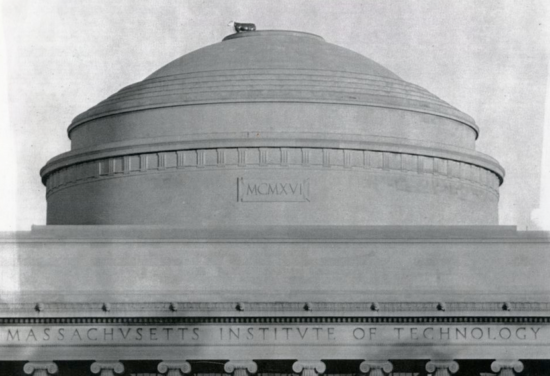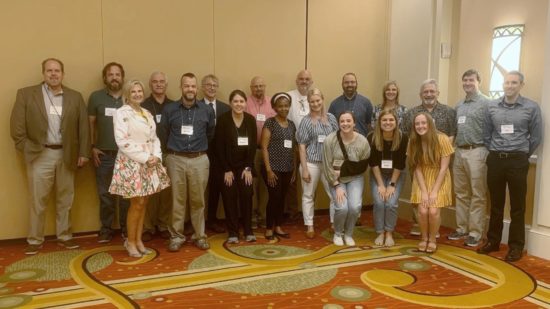Your sour cream needs pickles, turning off inflammation, if you’re stressed you’re not alone, and more
17 May 2022
Posted by Andrew Kantor
The opposite of “staycation”
Fun fact: A survey by OnePoll found that “2 in 3 people think bringing family or friends on business travel is acceptable.” It’s called … the bleisure trip.
And when it comes to the Georgia Pharmacy Convention, we don’t just think it, we encourage it — that’s why the convention is at the glorious Omni Amelia Island Resort!
Bring your family, friends, neighbors, the weird hobo who hangs out at the 7-Eleven … they’ll all have an amazing time exploring the resort and the island.
On that note….
The Omni room block closes TOMORROW — May 18! Be sure you’ve grabbed your room (or villa!) before the deadline, lest you have to stay at some other hotel like … like a commoner.
IMPORTANT : We’ve added 20 (!) rooms to the room block for Saturday night! If you couldn’t get the GPhA rate, book now.
Click here to book online with the Omni. Want to reserve a villa instead? CLICK HERE! Mouse broken? Call the hotel at (888) 444-6664 (and be sure to mention you’re with GPhA).
Don’t forget: Get your DIR update tonight
If you want to be extra sure you know the details of CMS’s final DIR rule, tonight’s the night — Tuesday, at 8:00pm EDT. That’s when NCPA’s policy team will give its take on that rule and what it means for you in a free webinar.
Free, yes, but you do need to register first: Click here to do just that.
An inflammation switch
Inflammation is like chocolate or reading Ayn Rand: A little can be useful, but too much is bad for you in the long term.
When cells detect pathogens, the essentially commit suicide rather than spread the infection infected. (One researchers called it a “temple of doom” that traps viruses when it destroys itself.) That’s where inflammation comes from. It’s good at first, but eventually the inflammation itself becomes dangerous.
While researching that cell death — called the “TNFR1 death complex” after the protein that triggers it — Aussie researchers discovered how the body eventually stops it: An enzyme called tankyrase-1 tags a cell with a particular sugar so the body removes that protein and stops the cell’s death … and the inflammation.
In a sense, they’ve figured out how to mark cells so they don’t turn into temples of doom.
This discovery could have implications for patients suffering from chronic inflammatory diseases driven by unregulated cell death, such as psoriasis and rhuematoid arthritis. It could also impact patients suffering from inflammatory cancers, such as those in the bowel, where there is too little cell death.
One day, one golden parachute
The other day we told you how Moderna’s new CFO left the company after just one day. If you were worried about Jorge Gomez, don’t be. He’ll still receive his $700,000 base salary, unless he’s found guilty of wrongdoing at his previous job. (You can shed a small tear, though: He did have to give up his $500,000 signing bonus and $4 million in stock.)
Pharmacists’ stress is deadly
Between 2003 and 2018, pharmacists had a 66% higher rate of suicide than the general population — 20 per 100,000 pharmacists compared to 12 per 100,000 overall. That comes from a study by University of California pharmacy researchers based on CDC data.
Note that the data are through 2018. “Study authors expect numbers to be even higher in subsequent years due to the additional stressors of the pandemic.”
And while existing mental health issues can certainly be a factor, they point the finger at job-related stress:
“Pharmacists have many more responsibilities now, but are expected to do them with the same resources and compensation they had 20 years ago. And with strict monitoring from state and federal regulatory boards, pharmacists are expected to perform in a fast-paced environment with perfect accuracy. It’s difficult for any human to keep up with that pressure.”
Foundation’s PharmAssist set to relaunch
PharmAssist, Georgia’s addiction and recovery help network for pharmacists, is almost ready for its re-launch — it held volunteer training on Saturday in Macon.
PharmAssist (part of the Georgia Pharmacy Foundation’s PharmWell professional health and wellness program) is an addiction and recovery help network for pharmacists, pharmacy techs, students, and other pharmacy staff.
“It has been a dream of mine to get a pharmacists recovery network started in Georgia for a long time,“ said PharmWell committee chair Joe Ed Holt. “Saturday that dream came one step closer to fruition. Stay tuned for more updates and ways to get involved!”
Is that a pickle in your sour cream, or are you just happy to see lower oxysterols?
If, like most people, you’ve lain awake at night wondering “Can pickles increase the health benefits of sour cream?” there’s good news. Polish researchers have found that yes, yes there is.
In short, adding cucumbers to the sour cream led to not only “a significant decrease in cholesterol content in the sour cream,” but to lower levels of carcinogenic oxysterols, which occur when the sour cream is exposed to light.
The incredible shrinking medical science
Wireless smart stent
“It’s like a stent with multiple tricks up its sleeve.” That’s how Georgia Tech researcher Woon-Hong Yeo described an implantable sensor that can monitor a patient’s blood flow to help inform treatments for conditions like hypertension and atherosclerosis.
Forget those pesky angiograms:
[W]hen this device is installed in a patient with atherosclerosis, in addition to expanding and preventing the artery from narrowing, like a traditional stent, restoring normal blood flow, it will also provide a constant flow of data [including arterial pressure, pulse, and flow].
It needs no batteries and can be “delivered” by catheter anywhere in the body … once it’s out of the lab, anyway.
Sugar-powered implants
Steve Austin needed a tiny nuclear reactor to power his bionic legs (and arm, and eye). That would be a problem today, especially if you’re going through an airport. But now MIT researchers have developed a practical fuel cell that uses the body’s glucose as a power source for implanted medical devices.
The glucose-platinum cells are 1/100th the thickness of a human hair, and able to withstand temperatures up to 600°C (that’s 1,112 in °Freedom) — hot enough to be sterilized for medical use.
While a glucose fuel cell isn’t new, one this tiny and tough is. It’s currently just in the lab, so images of grad students scampering up the university’s Great Dome are purely coincidental.

Monkeypox update
The writers continue to tease next season, as there are now three four cases of monkeypox in Britain, according to the U.K.’s Health Security Agency. The interesting part is that the three latest are not connected with the first.
Worry not: “[I]t is important to emphasise it does not spread easily between people and requires close personal contact with an infected symptomatic person,” said a UKHSA official. “The overall risk to the general public remains very low.”




